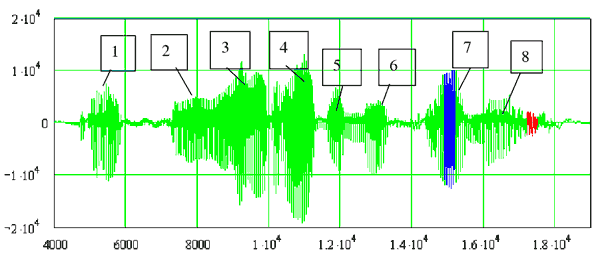Developed a procedure for the transfer of biometric data of Russians in the FSB and the Ministry of Interior

The identification or verification of a person in VoiceKey and VoiceNet technologies is carried out by fragments of spontaneous speech lasting more than 16 seconds.
The Ministry of Communications and Mass Media has developed a procedure for the transfer by the operator of the Unified Information System (Rostelecom) to the FSB and the Ministry of Internal Affairs of biometric data of Russian citizens. The corresponding document was published on the federal portal of draft regulatory legal acts.
We are talking about face image data and voice data. This information allows a high degree of accuracy to identify a specific person in a large volume of voice traffic (“voice verification”) or on video surveillance cameras .
')
Rostelecom was appointed the operator of the Unified Information System by the order of the Government of the Russian Federation No. 293-p dated February 22, 2017. According to the plans of the government, the operator "will ensure the collection, processing and storage of biometric personal data, as well as verification of their compliance with the initially submitted biometric samples." The data will be stored in a network of "high-performance and secure data centers for the secure processing and storage of biometric personal data."
According to the developed procedure, the operator must provide data at the request of the Ministry of Internal Affairs and the FSB "in order to ensure the defense of the country, the security of the state, the protection of the rule of law and counter terrorism."
The operator is obliged to provide this data within 24 hours through a single system of interdepartmental electronic interaction in a form that allows one to identify the person. “The provision of this information is free of charge,” the document says.
The format of data transmission is set by the operator of a single biometric system in coordination with the Ministry of Internal Affairs of Russia and the Federal Security Service of Russia.
“The implementation of this project is an important step towards the development of the digital economy in Russia. The launch of the Unified Biometric System within the framework of solving the tasks of the financial industry, as well as its further use in various industries - from telemedicine and remote sensing to e-commerce, will increase the availability of digital services for residents of remote regions and slow-moving people, and will also improve the quality of life Russians, ” said Mikhail Oseevsky, President of Rostelecom.
Mikhail Oseevsky assured that the developed mechanism is transparent and ensures that the leakage of personal data of citizens will not occur. He also believes that the society has developed an inappropriate attitude to the collection of biometric information - and this attitude needs to be changed: “A certain balance is always needed between preserving freedoms and ensuring security. But we have recently, on the basis of false ideas about the boundlessness of democracy and absolute freedom, security issues faded into the background. As a result, the terrorist threat throughout the world has not yet been overcome. Therefore, society should calmly relate to such mechanisms and focus more attention not on denying them, but on their improvement and public control over their use, ”said Yemelyanov.
The commencement of commercial operation of a single biometric system in the Russian Federation is scheduled for July 1, 2018.
Initially, it was also stated that the system will be used in banks for remote identification of citizens when opening accounts. This is a natural method of monetization of the system for Rostelecom. If the FSB and the Ministry of Internal Affairs can receive biometric data of citizens upon request at no cost, then banks will have to pay. To pay back the project, Rostelecom plans to charge 200 rubles from each bank that will open an account for an individual using a biometric system.
The initial collection of biometric data is also entrusted to the banks. According to the plan, from each payment in 200 rubles. Rostelecom will transfer 100 rubles. to the bank that made the primary collection of biometric data for a specific citizen. Thus, for banks this is also an additional source of income - they will also be interested in collecting biometric data of their clients.
Banking is just the beginning. In perspective, the biometric database should be widely used in many other areas of public life: for obtaining state and municipal services, health care, education, and other areas.
Rostelecom plans to invest about 200 million rubles in the project. The payback period of the system is 8–10 years.
Source: https://habr.com/ru/post/357476/
All Articles